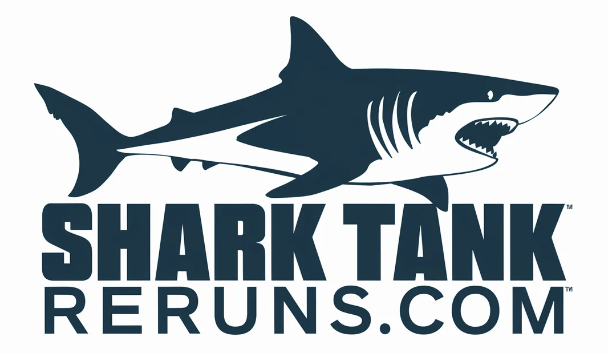For many, Kevin O’Leary is Mr. Wonderful, the shrewd and candid business magnate whose keen insights and tough love have become a staple of the hit show Shark Tank. O’Leary has shaped his public persona around a straightforward, often blunt, investment savvy, shaping not only his Kevin O’Leary Shark Tank bio but also empowering many aspiring entrepreneurs who dream of making their business a household name. Yet, beyond the camera’s glare, what financial wisdom can one distill from O’Leary’s journey that could shift an entrepreneur’s fortunes? From understanding Kevin O’Leary’s net worth growth strategies to dissecting his more than a decade’s worth of Kevin O’Leary Shark Tank appearances, there’s a treasure trove of insights that could redefine your entrepreneurial journey.
Kevin O’Leary’s earnings and salary from the show may only scratch the surface; the true value lies in the discipline and strategic mindset that have amplified his wealth to staggering heights. The transformation of Kevin O’Leary’s portfolio serves as a masterclass in capital investment and financial growth. Each choice, from the discerning selection of worthy businesses to buy into, to the crucial decisions made in the infamous Shark Tank episodes, reveals layers of O’Leary’s decision-making matrix, resonating with any entrepreneur seeking to etch their mark on the business landscape. O’Leary’s life, though peppered with stardom, is fundamentally a tale of undiluted entrepreneurship – a narrative rich with takeaways for every dreamer with a ledger.
But how did Kevin O’Leary cultivate a mindset that allowed him to build such an empire? It’s not just about the dollars and cents, but the philosophies and decisions that forge an entrepreneurial titan. Journey with us as we uncover the mantras that elevated O’Leary beyond the mere ranks of investors into a legend in the business world.

Key Takeaways
- Discover the investment strategies that escalated Kevin O’Leary’s net worth to $400 million.
- Learn how O’Leary’s appearance on Shark Tank extends beyond television to shape real-world entrepreneurial success.
- Understand the crucial role of strategic decision-making in O’Leary’s financial achievements.
- Uncover the philosophies that guide O’Leary’s investment choices and business growth tactics.
- Gain insights into the disciplined mindset that transforms business opportunities into lucrative ventures.
The Investment Principles of Kevin O’Leary for Growing Net Worth
Embarking on a journey that has elevated Kevin O’Leary net worth to an estimated $400 million requires more than just a Midas touch—it requires a stringent set of investment principles.
“Money is a cruel master but a great servant.”
These words encapsulate O’Leary’s philosophy as he forged his reputation through shrewd Kevin O’Leary investments and diversified Kevin O’Leary business ventures. His modus operandi? An emphasis on cutting losses early, an approach that has allowed him to protect and subsequently grow his capital investment.
- Risk management: Avoiding emotional attachment to underperforming businesses gives rise to clear-headed evaluations and, in turn, prompts timely divestments.
- Capital allocation: Redirected focus towards profitability and scaling up sectors of the market showing strong potential.
- Investment diversity: Kevin’s portfolio spans various industries, spreading risk, and amplifying opportunities for return.
- Long-term perspective: While some investments may not show immediate profits, a long-term outlook ensures sustainable growth.
His insightful strategies are not mere conjecture; they’re a blueprint tenant to his monumental fiscal ascent. Below, a table elucidates the various sectors that have benefited from his Midas touch.
| Business Sector | Investment Approach | Outcome |
|---|---|---|
| Technology | Diversified funding into growth-stage tech startups. | Expansion of personal wealth, fostering innovation. |
| Consumer Goods | Backing products with widespread appeal and scalability. | Consistent revenue streams and brand establishment. |
| Financial Services | Investment in FinTech companies disrupting traditional banking. | Positioned at the forefront of a paradigm shift in finance. |
| Entertainment | Capitalizing on digital media and content creation ventures. | High returns on investment due to the burgeoning media consumption. |
| Education Technology | Supporting platforms that revolutionize learning and skill acquisition. | Generated gains from an industry with exponential growth potential. |
The culmination of these ventures is not solely anchored in financial gain but in cultivating an ecosystem where business efficiency and innovation can thrive. It is here that O’Leary’s principles of investment resonate most, transforming every dollar into a strategic soldier in the battlefield of enterprise.
Kevin O’Leary’s Advice on Knowing When to Pull the Plug
Entrepreneurship is fuelled by passion and tenacity, but it’s also driven by strategic decisions and the cold hard facts of finances. Kevin O’Leary, a notorious figure on Shark Tank, has become synonymous with the philosophy of “strategic quitting.” To succeed in the highly competitive world of business, understanding when to stay the course and when to cut your losses is crucial. O’Leary’s insights on preserving business capital and understanding business timelines can serve as guiding principles for entrepreneurs looking to navigate their ventures towards profitability.
Preserving Capital for Profitable Enterprises
Pivotal to Kevin O’Leary’s investment strategy is the emphasis on protecting the lifeblood of any business—its capital. Preserving business capital isn’t about holding onto money at all costs; it’s about ensuring that the cash you have is allotted to ventures that promise the best return on investment. O’Leary’s razor-sharp focus on maintaining financial health translates into an uncompromising approach towards folding businesses that fail to deliver expected outcomes. This practice not only avoids further losses but also frees up resources to be reallocated to more fruitful opportunities.
Understanding the Timelines for Business Success
A common pitfall for many entrepreneurs is misjudging the timeline for their business to turn a profit. Kevin O’Leary’s rule of thumb is simple: if a business can’t turn a profit within 36 months, it’s likely more of a hobby than a viable enterprise. He advises understanding business timelines to predict and measure success accurately. It’s a matter of being honest with one’s self about the financial trajectory and making the tough decision to quit strategically if the business isn’t meeting its targets. Recognizing these signals early on can be the difference between an entrepreneur who flounders and one who thrives.
Tracing Kevin O’Leary’s Path to Success
The odyssey of Kevin O’Leary’s career illustrates a tale replete with savvy investments and strategic growth. Considered by many as a titan in the business world, O’Leary’s life narrative is punctuated by an array of diversified business ventures, each underlining his exceptional business intuition and an uncanny ability to turn the ordinary into extraordinary wealth. Kevin O’Leary’s life, characterized by shrewd decisions and a flair for the eclectic, offers invaluable lessons for aspiring entrepreneurs.
From Software to Wine: Diversified Business Ventures
Embarking on a journey from his early beginnings in the software industry to becoming a wine connoisseur, O’Leary has masterfully navigated through various sectors with finesse. His flagship venture, SoftKey Software Products, propelled him to the forefront of the software world, while his involvement with O’Leary Fine Wines exemplifies his versatility and keen market insight. These varied endeavors are not random scatterings but a testament to his adaptability and a perceptive approach to business opportunities.
Key Influences and Inspiring Business Intuition
O’Leary often credits his mother’s fundamental business and financial advice as a cornerstone of his now-familiar disciplined investment philosophy. This mentorship, coupled with his inherent entrepreneurial instincts, has equipped him with a unique lens for identifying high-yield investment opportunities. His journey stands as a blueprint for success, fortified by resilience and learning from every venture, paving the way for his status as a renowned business magnate.
Due Diligence and Market Research: Kevin O’Leary’s Top Business Tip
Kevin O’Leary, recognized for his sharp analytical skills on Shark Tank, attributes a significant part of his success to unwavering commitment to due diligence and market research. He advocates that a deep dive into the competitive landscape is non-negotiable for entrepreneurs who aim for the top.

According to O’Leary, understanding where your product or service fits on the market shelf not only aids in assessing the current competition but also in predicting future market trends. Insightful research and due diligence allow entrepreneurs to forecast demands and innovate ahead of others.
“Know your playground as well as the kindergartners do. That’s how you beat them at the game.” – Kevin O’Leary on the importance of market knowledge.
Below is a comparative analysis illustrating why due diligence and market research are pivotal, providing a clearer picture of Kevin O’Leary’s strategic approach to investment:
| Aspect | Diligent Research | Insufficient Research |
|---|---|---|
| Market trends | Forecasts market shifts, prepares for future demands | Falls behind on trends, reacts rather than acts |
| Competitive edge | Identifies unique selling propositions | Products/services easily replaced or outdated |
| Customer needs | Aligns product improvements with customer feedback | Misjudges customer preferences, leads to poor sales |
| Investment risks | Gauges and mitigates financial risks effectively | Incurs unexpected financial losses |
| Long-term strategy | Develops a roadmap for sustainable growth | Lacks direction, vulnerable to swift market changes |
In essence, the meticulous process of conducting thorough market research and due diligence is an essential buffer against unpredictability and sharpens an entrepreneur’s decision-making acuity. It’s a principle that Kevin O’Leary heralds for cultivating business resilience and advantage in a dynamic marketplace.
Kevin O’Leary Shark Tank: Frugality and Focus on Sales
Embodying the essence of strategic entrepreneurship, Kevin O’Leary sets an exemplary standard for startups with his unwavering commitment to frugality and focus on sales. His success on Shark Tank isn’t a stroke of luck; it’s the culmination of rigorously practiced business acumen. O’Leary often recounts that the most common pitfall for new ventures is rampant expenditure. As such, he champions a conservative fiscal approach paired with aggressive sales tactics to drive early stage company growth.
Minimizing Expenditure in Initial Business Phases
At the threshold of their journey, startups are particularly vulnerable to financial missteps. True to his reputation for Kevin O’Leary frugality, Mr. Wonderful advises entrepreneurs to vigilantly safeguard their capital. Here’s a key takeaway from his Shark Tank episodes—minimize startup costs and optimize resource allocation:
| Expenditure Category | Frugal Management Strategies | Benefits |
|---|---|---|
| Office Space | Consider remote work or shared workspaces | Decreases rental costs and promotes flexibility |
| Marketing | Leverage social media and content marketing | Expands reach without breaking the bank |
| Staffing | Hire essential personnel, use freelancers | Reduces overhead and encourages scalability |
| Equipment | Buy used or lease equipment | Lowers initial investment while maintaining productivity |
Why Sales Should Be the Foremost Priority for Startups
Yet frugality alone isn’t the key to sustainability; it must walk hand-in-hand with a robust sales strategy. Kevin O’Leary has been quoted saying, “Sales cure all.” Here’s how focusing on sales can turn the tide for fledgling businesses:
- Sales generate crucial revenue – It’s the fuel that keeps the business engine running.
- Proof of concept – High sales volumes validate market demand for your product or service.
- Investor interest – Demonstrable sales traction can attract more investment and foster business growth.
- Market penetration – Focusing on sales helps startups penetrate the market and gain a foothold against competition.
In the cutthroat arena of business, embodying the principles of Kevin O’Leary frugality and a relentless focus on sales sets the stage for a startup’s success and longevity.
Strategic Quitting: Kevin O’Leary on Abandoning Losing Ventures
In the world of business, strategic quitting is as much an art as it is a tough entrepreneurial decision-making process. Kevin O’Leary, a prominent figure known for his sharp business acumen, conveys the importance of knowing when to walk away from ventures that fail to bear fruit. According to O’Leary, the decision to stop investing time, money, and resources into non-profitable endeavors can mark the difference between continuous financial loss and shrewd business management. This critical turning point fosters the preservation of capital and redirects focus toward more promising opportunities.
O’Leary’s methodology places a strong emphasis on evaluating ongoing ventures with a critical eye and making decisive moves based on performance metrics. Here, we delve into the concept of strategic quitting and how it plays a pivotal role in sustaining long-term success.
- Analyze regularly: Monitor your business venture’s progress against set benchmarks and goals.
- Be objective: Assess the situation from a financial standpoint, removing any emotional biases.
- Know the market: Understand the shifts and trends within your industry that may impact the viability of your business.
- Consult the team: Consider the perspectives and insights of key team members.
- Act decisively: Once a decision has been made, implement it swiftly to mitigate any further losses.

“The key to successful entrepreneurship is not just in the persistence to push through but also the wisdom to know when stepping back is the more strategic path.” – Kevin O’Leary
It is essential for entrepreneurs to not view quitting as a sign of defeat, but rather as a proactive measure towards safeguarding the future of their enterprises. As O’Leary highlights, strategic quitting requires an insightful recognition that certain battles might not be worth fighting, given the resources at hand and the potential return on investment.
| Scenario | Indicator | Action |
|---|---|---|
| Consistent Revenue Decline | Revenue dips below operational costs for consistent periods. | Evaluate the cause and consider feasibility of a turnaround. If not viable, prepare to exit. |
| Market Saturation | Intense competition leading to diminishing returns. | Assess whether a unique selling proposition (USP) can be established; if not, quit strategically. |
| Technological Redundancy | New technologies render product or service obsolete. | Adapt and innovate or exit the market to minimize losses. |
By adopting strategic quitting as a key component of business operations, entrepreneurs are better equipped to navigate the challenging waters of industry, ensuring the longevity and health of their overall portfolio. Kevin O’Leary’s insights into this aspect of entrepreneurial decision-making serve as a powerful guide for business owners looking to maximize their chances for success.
Assembling a Stellar Team According to Kevin O’Leary
Behind every legendary business magnate like Kevin O’Leary lies a fortification of incredible minds and talents. Recognizing the collective strength that a well-assembled team can deliver, O’Leary views the interlacing of diverse yet complementary expertise as a pivotal element for business team success. The process of recruiting complementary talent is more an art than a task, involving strategic selections that contribute profoundly to a company’s sustainable progress and innovative prowess.
Recruiting Talent That Complements Your Skillset
Kevin O’Leary insists that forming an impeccable business unit doesn’t merely hinge on hiring the best individuals in their fields; it’s about orchestrating a group where each member’s strength serves as a cog in the larger mechanism. This approach to assembling a stellar team ensures all facets of business operations are handled expertly, making the collective output far greater than the sum of its parts.
The Role of a Great Team in Achieving Business Success
O’Leary’s own ascension to entrepreneurial stardom attests to his recruitment philosophy, crediting his keen ability to align with visionaries and thought leaders who possess the prowess to drive forward his business ideologies. This shared vision synergy solidifies his blueprint for business team success, enhancing innovation and fostering a competitive advantage in the high-stakes entrepreneurial landscape.
Mastering the Art of the Elevator Pitch with Kevin O’Leary’s Insights
In the fast-paced world of business, being able to communicate your vision effectively is paramount. Kevin O’Leary, renowned for his shrewd business acumen on Shark Tank, insists that the key to grabbing investor attention lies in effectively mastering the elevator pitch. An entrepreneur’s first interaction with potential investors often calls for a concise and impactful overview of their business plan, which is why the elevator pitch is a fundamental skill for successful business vision expression.
Expressing Your Business Vision Quickly and Clearly
The clarity of your pitch can either open doors or close them. O’Leary emphasizes that within those brief, crucial moments, an entrepreneur must leave no doubts about the viability and potential of their business idea. Conveying a business vision with lucidity and enthusiasm demonstrates to investors not only the potential impact of the concept but also the entrepreneur’s own belief and confidence in their proposal.
Convincing Investors in Under 90 Seconds
The magic number according to O’Leary is 90 seconds – the optimal time to deliver a potent message that can propel investor intrigue and commitment. A pitch that’s efficient in both its brevity and message can be profoundly convincing to investors quickly, pushing them to act before the opportunity slips away. In these instances, every second and every word counts towards securing potential investment and interest.
- Identify the core value proposition
- Highlight unique differentiators
- Address potential market size and growth
- Conclude with a strong call to action
By embracing these insights from Kevin O’Leary, entrepreneurs can craft powerful elevator pitches that resonate with investors and pave the way for successful business ventures.
Understanding Cash Flow Management: Insights from Kevin O’Leary
As an entrepreneur, Kevin O’Leary stands by the principle that understanding cash flow is not just a practice but a mandate for securing the longevity of a business. The ability to monitor the ins and outs of your finances—a process known as entrepreneurial cash monitoring—can mean the difference between scaling effectively and crashing prematurely.
“Cash is oxygen. You can’t survive without it.” – Kevin O’Leary
Effective financial management involves keeping a close watch on cash flow projections, preparing for seasonal shifts in business, and ensuring that barriers to liquidity are minimized. O’Leary advises that CEOs should prioritize cash preservation over all else to extend their business’s runway.
| Cash Flow Component | Description | Relevance to Financial Health |
|---|---|---|
| Operating Cash Flow | Revenue from business operations less operating expenses | Indicates day-to-day viability |
| Investing Cash Flow | Cash spent or earned from investments in assets | Reflects the company’s growth and future potential |
| Financing Cash Flow | Cash exchanged through debt, equity, and dividend payments | Shows the company’s financial strategy and solvency |
Entrepreneurial cash monitoring is not about being afraid to spend, but about knowing when and where to allocate your capital. O’Leary’s teachings highlight the vitality of balancing between cautious spending and strategic investment, ensuring that every dollar spent has the potential to grow the enterprise.
Remember, knowledge of numbers fortifies you against the unpredictability of the business landscape.
Common Missteps Leading to Entrepreneurial Failure
Despite the allure of launching a startup, the journey is fraught with challenges that, if not navigated carefully, can steer a business towards failure. Kevin O’Leary underscores the significance of steering clear of common entrepreneurial missteps by embracing prudent growth strategies and keen market awareness.
Realistic Growth and Revenue Projections
The optimism driving entrepreneurs often leads to inflated growth and revenue projections. Overestimation can result in poor financial planning, leading to inadequate funding and operational setbacks. O’Leary insists on the importance of setting realistic financial goals and diligently monitoring progress against them.
Avoiding the Pitfalls of Overly Competitive Markets
Competition can be a double-edged sword in the entrepreneurial world. Stepping into an overly competitive market without a clear competitive edge or unique value proposition invites risk. O’Leary cautions entrepreneurs to perform thorough market analysis to avoid the pitfalls of saturation and to uncover niches that offer viable opportunities for differentiation.
Ultimately, awareness and strategic foresight can be the difference between success and stumbling into the chasm of business ventures that couldn’t withstand the test of a demanding, ever-evolving marketplace.
Kevin O’Leary’s Stance on Emotional Reactivity in Business Decision-Making
In the sphere of business, a level-headed and calculative approach is heralded by many as the bedrock of effective management. Kevin O’Leary, a figure synonymous with assertive and calculated entrepreneurship, is an advocate for embracing rational decision-making over succumbing to emotional reactivity in business. Through his experiences on Shark Tank and his personal ventures, O’Leary consistently underscores the necessity for business objectivity. This mindset prioritizes factual analysis and hard data as the compass for navigating strategic decisions.
O’Leary’s philosophy stems from a clear understanding that emotions can cloud judgment and overshadow the raw truth presented by numbers. He suggests that allowing emotions to influence business decisions is akin to piloting a ship with a skewed compass—destined to veer off course. The discipline of detaching emotionally from both uplifting triumphs and disheartening setbacks enables entrepreneurs to view their operations through an unvarnished lens, thereby making more informed and strategic choices that bolster the company’s trajectory towards success.
Implementing this mantra involves a steadfast focus on the impacts of decisions on the company’s bottom line, growth potential, and sustainability. It means assessing the viability of a venture without the influence of passions or fears—a practicality that Kevin O’Leary insists is paramount. As businesses evolve in an ever-fluctuating market, this guidance advocates for an impartial approach, a shield against the unpredictably of human emotions that can disrupt a business’s voyage to success.
